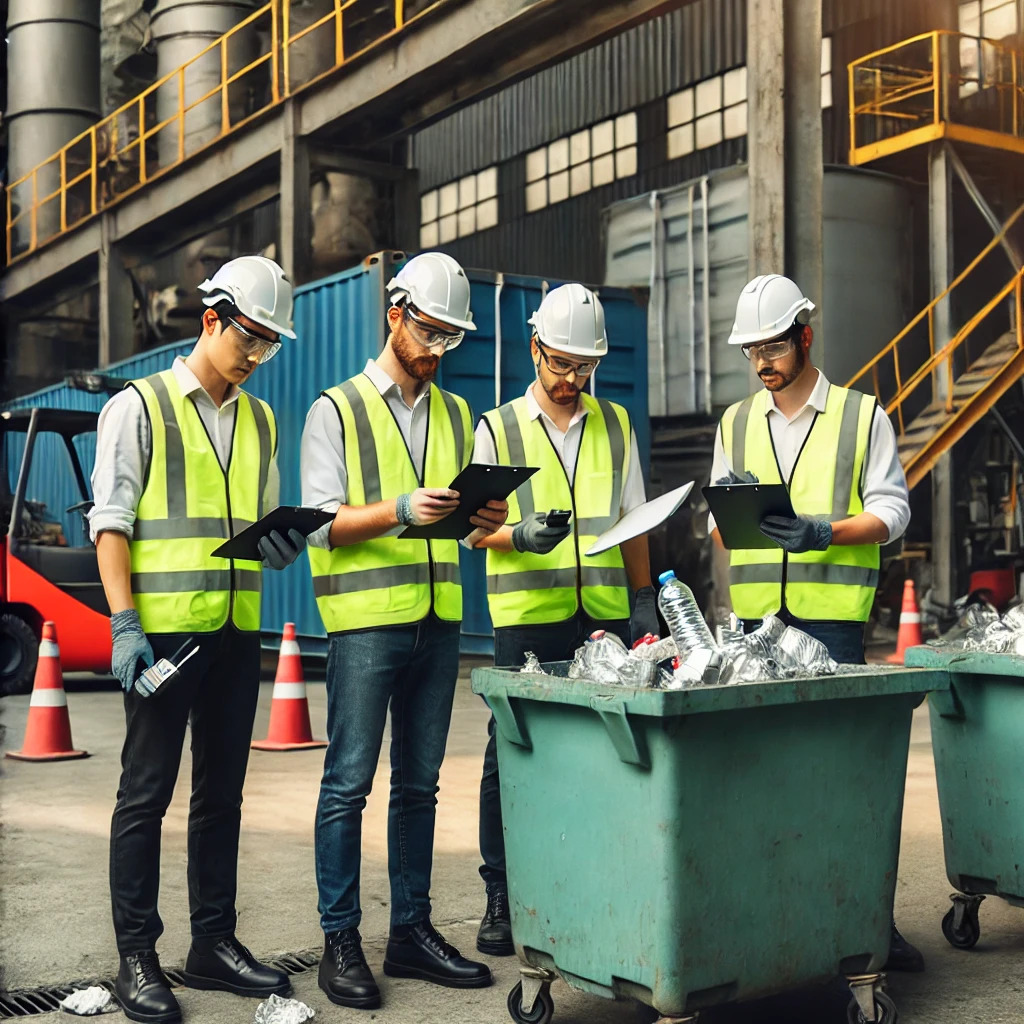Professional Industrial Waste Audit Services in Melbourne
Managing industrial waste efficiently is crucial for businesses to maintain sustainability, comply with regulations, and optimize operational costs. Industrial waste audit Melbourne services help companies assess their waste management practices, identify inefficiencies, and implement eco-friendly solutions. In this guide, we will explore the importance, process, and benefits of industrial waste audits, ensuring your business meets environmental and regulatory standards.

Table of Contents
- What is an Industrial Waste Audit?
- Why is an Industrial Waste Audit Important?
- Benefits of Industrial Waste Audit Services
- Key Industries That Need Waste Audits in Melbourne
- How Does an Industrial Waste Audit Work?
- Waste Categorization in Industrial Audits
- Compliance with Melbourne’s Waste Management Regulations
- Identifying Waste Reduction Opportunities
- Cost Savings Through Efficient Waste Management
- Sustainable Waste Disposal Methods
- Role of Technology in Industrial Waste Audits
- Choosing the Right Industrial Waste Audit Service in Melbourne
- Common Challenges in Industrial Waste Audits and Solutions
- Case Studies: Successful Waste Audits in Melbourne
- Tips for Preparing for an Industrial Waste Audit
- How Often Should a Business Conduct a Waste Audit?
- Understanding Waste Audit Reports and Implementing Changes
- Employee Involvement in Waste Management Practices
- Frequently Asked Questions (FAQs)
- Conclusion and Call to Action
1. What is an Industrial Waste Audit?
An industrial waste audit is a systematic evaluation of a business’s waste generation, handling, and disposal practices. It identifies waste streams, measures waste volume, and provides recommendations for improving waste management efficiency.
2. Why is an Industrial Waste Audit Important?
- Ensures compliance with environmental regulations
- Identifies waste reduction and recycling opportunities
- Helps businesses cut waste management costs
- Promotes corporate sustainability and responsibility
3. Benefits of Industrial Waste Audit Services
- Regulatory Compliance: Avoid fines and penalties by meeting Melbourne’s waste disposal laws.
- Cost Reduction: Reduce unnecessary waste disposal expenses.
- Sustainability Goals: Enhance corporate social responsibility initiatives.
- Operational Efficiency: Streamline waste handling processes.
4. Key Industries That Need Waste Audits in Melbourne
- Manufacturing
- Food processing
- Healthcare
- Construction
- Retail and logistics
5. How Does an Industrial Waste Audit Work?
Step-by-Step Process:
- Waste Stream Identification – Categorizing waste types.
- Data Collection – Measuring waste volume and sources.
- Analysis & Reporting – Identifying inefficiencies and cost-saving opportunities.
- Implementation Plan – Proposing sustainable waste management strategies.
- Ongoing Monitoring – Ensuring continuous improvement.
6. Waste Categorization in Industrial Audits
- Hazardous vs. Non-hazardous waste
- Recyclable waste
- Organic waste
- Electronic waste
7. Compliance with Melbourne’s Waste Management Regulations
Melbourne businesses must adhere to EPA Victoria guidelines and local council waste policies to ensure safe and legal waste disposal.
8. Identifying Waste Reduction Opportunities
- Implementing waste segregation at the source
- Upcycling and reusing materials
- Partnering with recycling facilities
9. Cost Savings Through Efficient Waste Management
Proper waste audits can help businesses reduce waste disposal fees, lower material costs, and improve operational efficiency.
10. Sustainable Waste Disposal Methods
- Recycling programs
- Composting organic waste
- Energy recovery solutions
11. Role of Technology in Industrial Waste Audits
- Smart waste tracking software
- IoT-enabled waste bins
- Data analytics for waste reduction
12. Choosing the Right Industrial Waste Audit Service in Melbourne
Factors to Consider:
- Experience and expertise
- Compliance knowledge
- Industry-specific solutions
- Transparent pricing
13. Common Challenges in Industrial Waste Audits and Solutions
- Data collection issues – Use technology for accuracy.
- Employee resistance – Provide training and incentives.
- Lack of awareness – Implement internal sustainability programs.
14. Case Studies: Successful Waste Audits in Melbourne
Examples of businesses that reduced waste and saved costs through professional waste audit services. Ask us for the details here Contact Us
15. Tips for Preparing for an Industrial Waste Audit
- Conduct an internal waste assessment
- Involve employees in waste tracking
- Organize waste records and disposal invoices
16. How Often Should a Business Conduct a Waste Audit?
Annual audits are recommended, but high-waste industries may require semi-annual assessments.
17. Understanding Waste Audit Reports and Implementing Changes
Learn how to interpret audit findings and apply cost-effective waste management strategies.
18. Employee Involvement in Waste Management Practices
Encourage employees to participate in waste reduction efforts through education and incentives.
19. Frequently Asked Questions (FAQs)
Q1: How long does an industrial waste audit take?
A: It depends on the business size and waste complexity, typically 1-2 weeks.
Q2: Is an industrial waste audit mandatory in Melbourne?
A: While not always mandatory, it is highly recommended for compliance and sustainability.
Q3: Can a waste audit help my business save money?
A: Yes! Waste audits identify cost-saving opportunities by reducing unnecessary waste disposal expenses.
20. Conclusion and Call to Action
An industrial waste audit Melbourne service is essential for businesses aiming to enhance sustainability, cut costs, and ensure compliance. By conducting regular waste audits, companies can minimize environmental impact while optimizing operations.
Ready to Improve Your Waste Management?
Contact us, a professional industrial waste audit Melbourne provider today to assess your waste management strategy and unlock cost-saving opportunities!